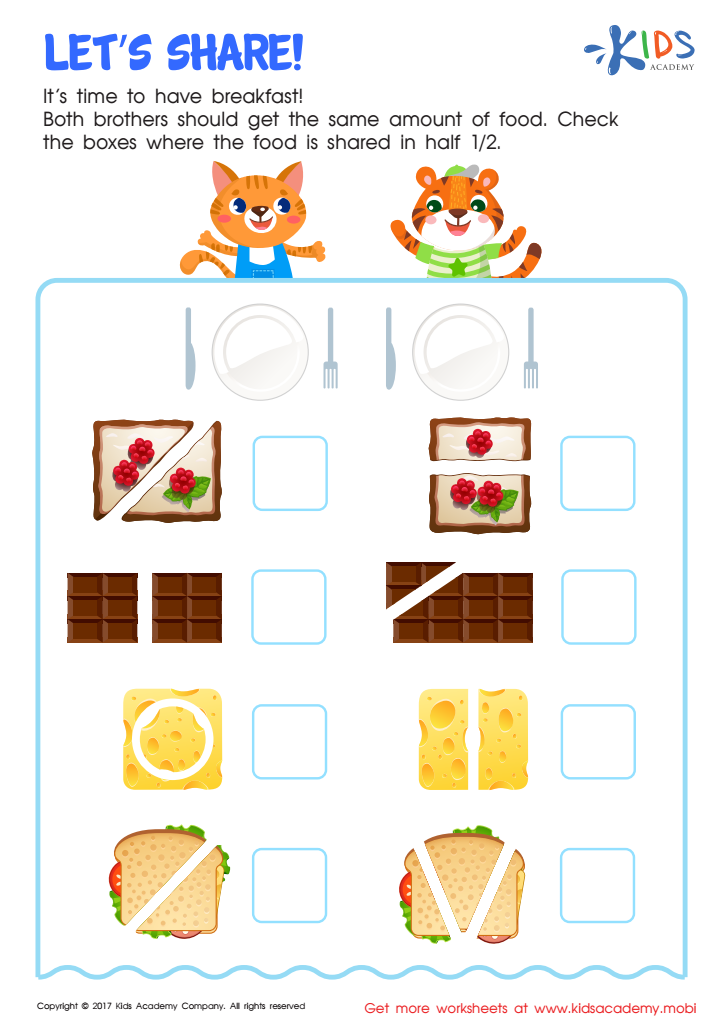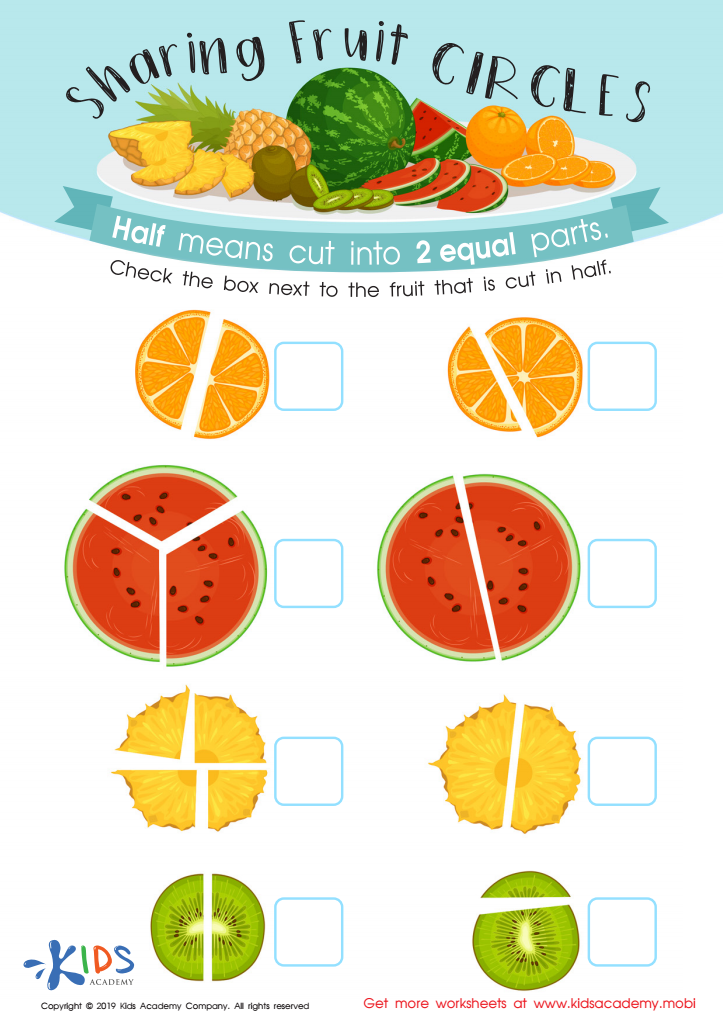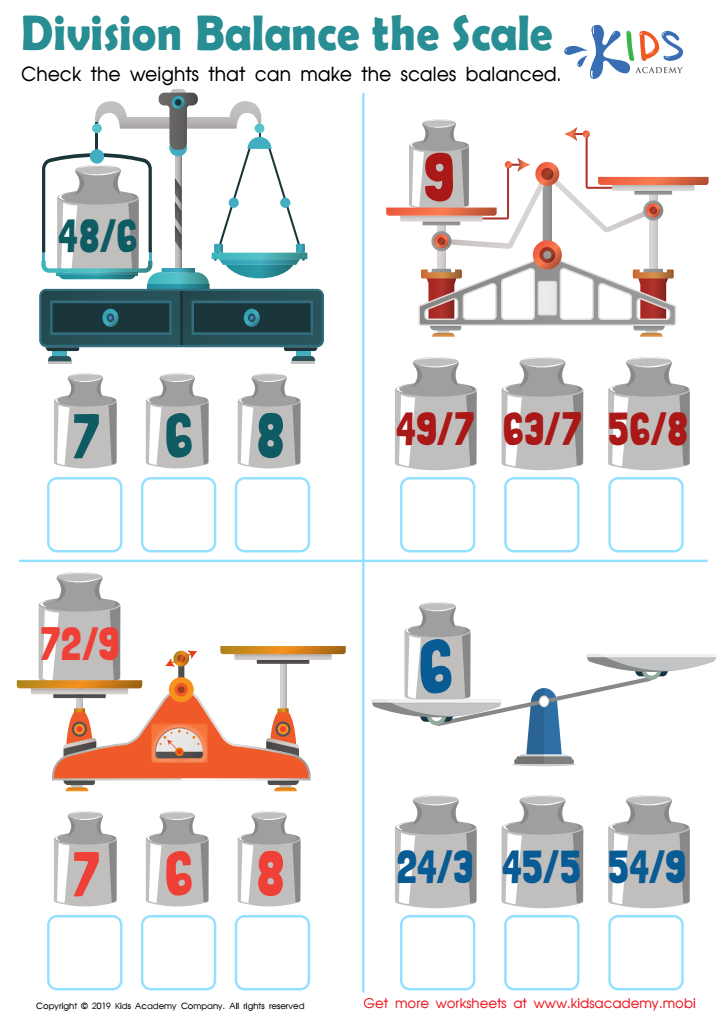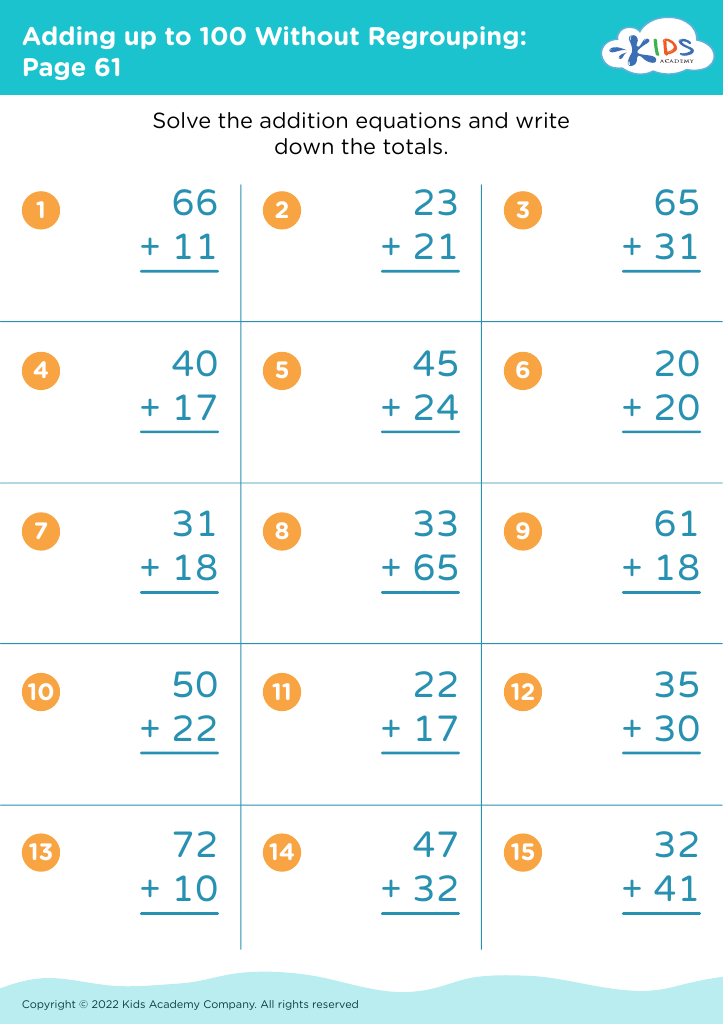Understanding division Math Worksheets for Ages 5-8
8 filtered results
-
From - To
Unlock the power of division with our engaging Math Worksheets designed specially for kids aged 5-8. These printable worksheets from Kids Academy help young learners grasp the concept of division effortlessly. Through fun activities and practical exercises, children will learn to divide numbers, understand equal sharing, and develop critical thinking skills. Our worksheets are perfect for reinforcing classroom learning, improving math proficiency, and building a strong foundation in mathematical principles. Parents and teachers will find invaluable resources that make learning division enjoyable and stress-free. Download and start exploring the world of division with your young mathematicians today!


Let's Share Worksheet


Sharing Fruit Circles Worksheet


Division Balance the Scale Worksheet
Understanding division is foundational for young learners as it sets the stage for a lifetime of mathematical thinking. For children ages 5-8, mastering division promotes critical cognitive skills. At its core, division involves distributing a set of objects evenly, which aligns with activities they encounter daily, such as sharing snacks or toys. This practicality helps make the concept more relatable and meaningful.
When children grasp division early on, it enhances their problem-solving abilities. The skill encourages logical reasoning, as they learn to figure out how many groups can be made from a certain number, or how many items each group will contain. These skills aren’t just confined to math; they extend to real-world scenarios, making children more confident in handling everyday tasks.
Furthermore, division is interconnected with other key mathematical concepts such as multiplication, fractions, and ratios. A solid understanding of division acts as a building block for these more advanced topics, ensuring that children are not left behind as the curriculum becomes increasingly complex.
Teachers and parents play a critical role in fostering a positive and engaging learning environment. When adults actively participate and show that they value understanding these early math concepts, children are more likely to develop a lifelong appreciation and curiosity for mathematics.
 Assign to My Students
Assign to My Students


























